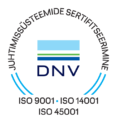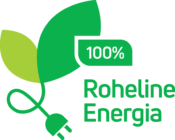Nordecon AS and joint tenderer Ramboll Eesti AS entered into a contract with the Estonian Road Authority today as the winners of the public procurement for the planning and construction of the Aruvalla-Kose section of the Tallinn-Tartu highway. The projected value of the contract, including unforeseen expenditure, is 54.2 million euros (inclusive of VAT).
“In about two-and-a-half year’s time the Tallinn-Tartu highway will be four lanes all the way to Kose, which is an important step in boosting road safety, not to mention convenience, on what is one of the country’s busiest roads – and not just for drivers, but for the people who live close by,” said Erkki Suurorg, a member of the management board of Nordecon. “And in broader terms it’s important to the state as well. Major investments designed to improve infrastructure are forward-thinking by nature, enhancing the well-being of people using public services and shortening the time it takes them to get from A to B, which in the world we live in today is a major consideration.”
Suurorg says that design work on the Aruvalla-Kose section of the highway will start immediately. Depending on the time it takes to complete and approve the project documentation, actual construction work is planned to start by this autumn at the latest.
The 13.3 km long stretch of road between Aruvalla and Kose will be redesigned and reconstructed as a four-lane highway meeting all Class 1 requirements. A further 20.1 km of collector roads and 8.2 km of light traffic roads will be designed and constructed as part of the project. Building work will include the construction of three multi-level junctions (at Siniallika, Kolu and Kuivajõe) and two multi-level intersections (at Kurena and Liiva). At Kuivajõe the highway will be crossed by two viaducts and a pedestrian bridge, while at Kurena it will be crossed by a single viaduct. An eco-corridor will also be constructed for wild animals at the 33.8 km mark, plus a total of 6.9 km of sound barriers and 19.3 km of lighting.
Construction work is scheduled for completion in August 2013. 85% of the cost of the project is being financed through the Cohesion Fund of the European Union.









